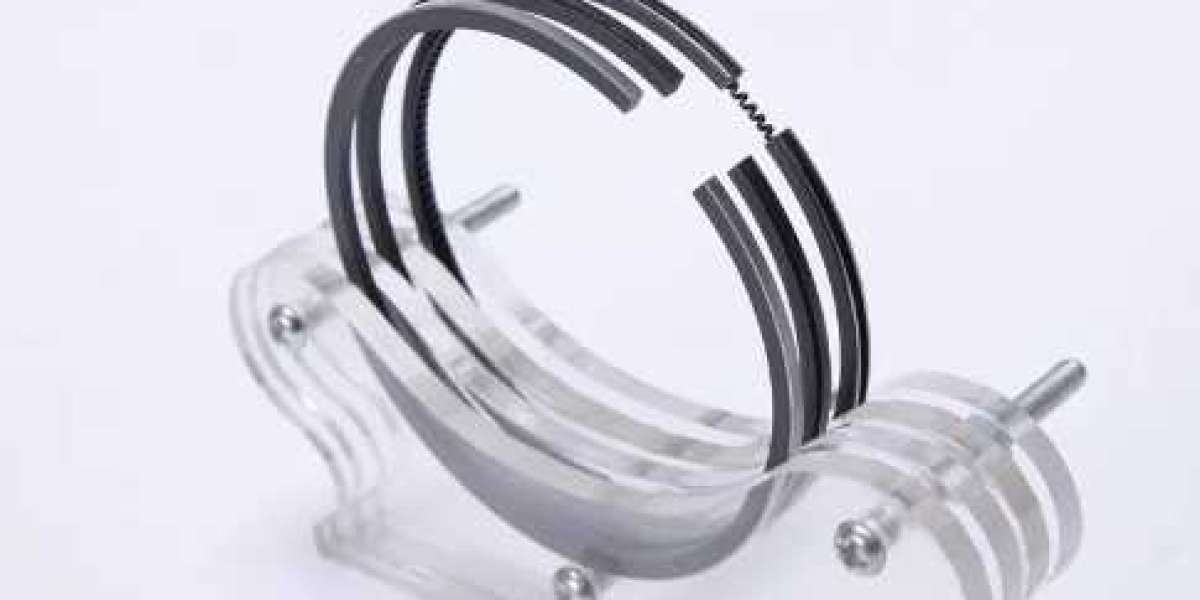Single-cylinder diesel engines have been widely used in various industries due to their high efficiency and durability. In the automotive industry, these engines have also gained popularity in recent years, especially in developing countries where cost-effective transportation solutions are in high demand. The compact size and low fuel consumption of single-cylinder diesel engines make them an attractive option for small vehicles such as motorcycles, tricycles, and even small cars. In this article, we will explore the application of single-cylinder diesel engines in the automotive industry and the advantages and challenges associated with their use.
How a single-cylinder diesel engine works
A single-cylinder diesel engine may seem small and simple compared to its multi-cylinder counterparts, but don't let that fool you. It packs a punch when it comes to efficiency and power delivery. So, how exactly does it work?
At the heart of a single-cylinder diesel engine is the combustion process. Unlike gasoline engines that rely on spark plugs for ignition, diesel engines use compression to ignite the fuel-air mixture. When the piston moves upwards during the compression stroke, air is compressed to high pressures and temperatures.
Next comes fuel injection. As the piston reaches top dead center, a precisely measured amount of diesel fuel is injected into the combustion chamber at high pressure. This atomized fuel mixes with the hot compressed air, creating intense heat and pressure.
This sudden increase in temperature causes spontaneous combustion of the fuel-air mixture, driving the piston downwards with great force during what's known as the power stroke. The energy generated by this downward motion is transferred through connecting rods to rotate the crankshaft.
As exhaust gases are expelled from previous cycles, fresh air enters through intake valves for another cycle to begin. The continuous repetition of these four strokes - intake, compression, power, and exhaust - keeps your single-cylinder diesel engine running smoothly.
So there you have it - a simplified explanation of how a single-cylinder diesel engine works its magic! Understanding this process helps us appreciate their unique characteristics and applications in various vehicles across different industries.
Advantages of using single-cylinder diesel engines in automobiles
When it comes to choosing an engine for automobiles, single-cylinder diesel engines offer a range of advantages that make them highly desirable. Let's take a closer look at some of these benefits.
First and foremost, single-cylinder diesel engines are known for their exceptional fuel efficiency. They are designed to deliver excellent mileage, allowing drivers to save money on fuel costs over time. This is particularly advantageous for those who commute long distances or use their vehicles frequently.
Another advantage of single-cylinder diesel engines is their durability and longevity. These engines are built to withstand the rigors of heavy-duty usage and can last for many years with proper maintenance. This makes them a reliable choice for individuals who rely on their vehicles for daily transportation or commercial purposes.
In addition, single-cylinder diesel engines provide ample torque at low RPMs, which translates into better pulling power and improved performance on steep inclines or when carrying heavy loads. This makes them suitable for various applications such as towing trailers or hauling goods.
Furthermore, single-cylinder diesel engines have lower operating temperatures compared to gasoline counterparts. This not only increases the overall lifespan of the engine but also allows it to operate more efficiently without overheating issues common with other types of engines.
Moreover, these engines emit less carbon dioxide (CO2) compared to gasoline-powered ones due to higher thermal efficiency and leaner combustion processes. As awareness about environmental impact grows, opting for a vehicle equipped with a single-cylinder diesel engine can contribute towards reducing greenhouse gas emissions.
Single-cylinder diesel engines tend to be more economical in terms of maintenance costs as they typically require fewer repairs than complex multi-cylinder models found in larger vehicles like trucks or SUVs.
The advantages offered by using single cylinder-dieselengines in automobiles make them an attractive option worth considering when looking for reliability,economy,and enhanced performance in your vehicle.

Applications of single-cylinder diesel engines in various types of vehicles (cars, trucks, motorcycles)
Single-cylinder diesel engines may seem small and compact, but they have a wide range of applications across different types of vehicles. These versatile powerhouses are known for their reliability and efficiency. Let's explore how single-cylinder diesel engines play a crucial role in cars, trucks, and motorcycles.
In the automotive industry, single-cylinder diesel engines find their place in smaller cars that require better fuel economy without compromising on performance. Due to their compact size and lightweight design, these engines can fit perfectly into urban commuting vehicles where space is limited.
Moving on to trucks, single-cylinder diesel engines provide the much-needed torque required for towing heavy loads. Their ability to deliver high levels of torque at low RPMs makes them ideal for off-road or rugged terrains.
Motorcycles also benefit from the use of single-cylinder diesel engines. These efficient power sources offer excellent fuel efficiency and provide enough power to tackle long journeys on two wheels.
Whether it's powering a car for city driving or handling demanding tasks like hauling goods or touring through challenging road conditions on a motorcycle adventure - the application possibilities are endless with single-cylinder diesel engines.
These reliable machines continue to be popular due to their simplicity in design and maintenance requirements. However, regular servicing is essential to keep them running smoothly over time.
To ensure longevity and optimum performance of your single-cylinder diesel engine vehicle, it's important to follow manufacturer guidelines regarding oil changes, filter replacements, as well as checking coolant levels regularly.
Single-cylinder diesel engine applications extend beyond just cars; they prove useful in trucks tackling tough terrains while offering exceptional fuel efficiency benefits in motorcycles too. With proper maintenance practices adhered to consistently by owners/operators – longevity optimal operation remain achievable goals!
How to maintain and repair single-cylinder diesel engine
Maintaining and repairing a single-cylinder diesel engine is crucial for ensuring its longevity and optimal performance. Here are some essential tips to keep in mind:
Regular maintenance is key. Schedule regular inspections and follow the manufacturer's recommended maintenance guidelines. This includes checking oil levels, filters, belts, and hoses.
Keep it clean. A clean engine is a happy engine! Regularly remove dirt, grease, and debris from the exterior of the engine to prevent buildup that can hinder performance.
Monitor fluid levels. Check coolant, oil, and fuel levels regularly to ensure they are at appropriate levels. Low fluid levels can cause overheating or damage to the engine.
Inspect for leaks or unusual noises. Keep an eye out for any signs of leakage or strange noises coming from your single-cylinder diesel engine during operation. Addressing these issues promptly can prevent further damage.
Replace worn-out parts promptly. Over time, certain components may wear out or become damaged due to regular use. When this happens, it's important to replace them with high-quality parts that meet the specifications of your specific engine model.
Consider professional assistance when needed: Some repairs may require specialized knowledge or tools that you might not have access to as a DIY enthusiast. In such cases, seeking professional assistance from a qualified mechanic is advisable.
By following these maintenance practices and addressing repairs promptly when necessary ensures that your single-cylinder diesel engine will continue running smoothly for years to come!

Conclusion
In this article, we have explored the application of single-cylinder diesel engines in the automotive industry. These compact yet powerful engines offer several advantages that make them a popular choice for various types of vehicles.
The advantages of using single-cylinder diesel engines in automobiles cannot be understated. Their fuel efficiency and durability make them ideal for long-distance travel and heavy-duty applications. Additionally, their simplicity and cost-effectiveness make them a viable option for budget-conscious consumers.
Understanding how a single-cylinder diesel engine works is crucial to fully appreciate its capabilities. The combustion process, driven by compression rather than spark ignition, allows these engines to generate high torque at low speeds, making them suitable for off-road vehicles as well as urban commuting.
Single-cylinder diesel engines find application in a wide range of vehicles across different segments. In cars, they are often used in small economy models where fuel efficiency is paramount. In trucks and commercial vehicles, they provide the necessary power for hauling heavy loads over long distances. Even motorcycles benefit from the torque characteristics offered by these efficient engines.
To ensure optimal performance and longevity of single-cylinder diesel engines, regular maintenance is essential. This includes routine oil changes, filter replacements, and inspection of components such as injectors and glow plugs. When repairs are needed, it's important to seek professional assistance or refer to manufacturer guidelines to avoid further damage.
Single-cylinder diesel engines play a significant role in the automotive industry due to their numerous benefits and versatile applications. Whether it's powering economical cars or robust trucks on challenging terrains, these reliable workhorses continue to prove their worth year after year.








